#james Jesus angleton
Text
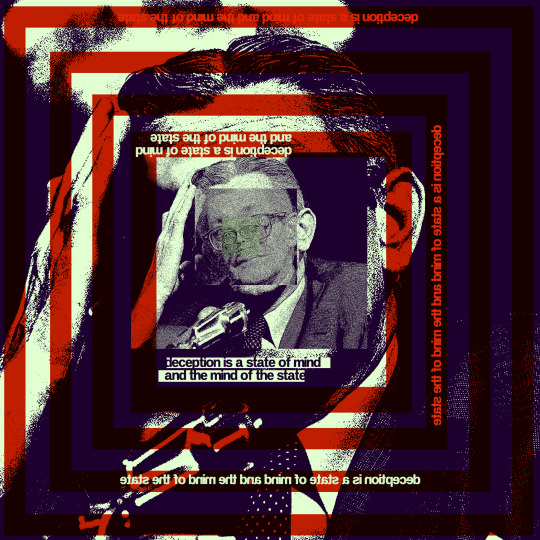
deception is a state of mind and the mind of the state, 2023.
collage artwork featuring james jesus angleton, one of the OGs, cia chief of counterintelligence from 1954-1975. the phrase is attributed to him, which betrays his notoriously paranoiac mindset.
#spooks#artwork#digital art#artists on tumblr#james jesus angleton#parapolitics#angleton#mixed media#bitcrush
0 notes
Photo
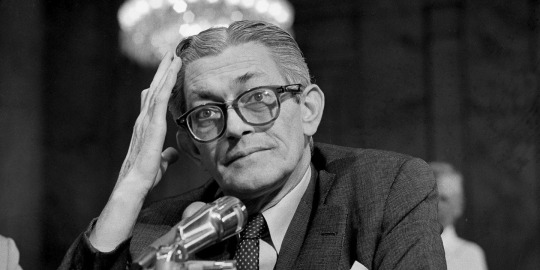
James Jesus Angleton, in his Brooks Brothers suit, trying to figure out how he was going to save America from the Commies.
He did what he could, until he was forced to resign in 1974.
0 notes
Text
for halloween today i am james jesus angleton:
6ft tall
a fucking twig
slept about 5 minutes
have a massively impossible workload and 2 days to do it (before a work trip that’s gonna last like 2 months)
losing my mind
running on coffee and conspiracies
probably gonna sneak cry breaks and overshare over lunch
13 notes
·
View notes
Text
“Deception is a state of mind and the mind of the State” James Jesus Angleton
4 notes
·
View notes
Photo
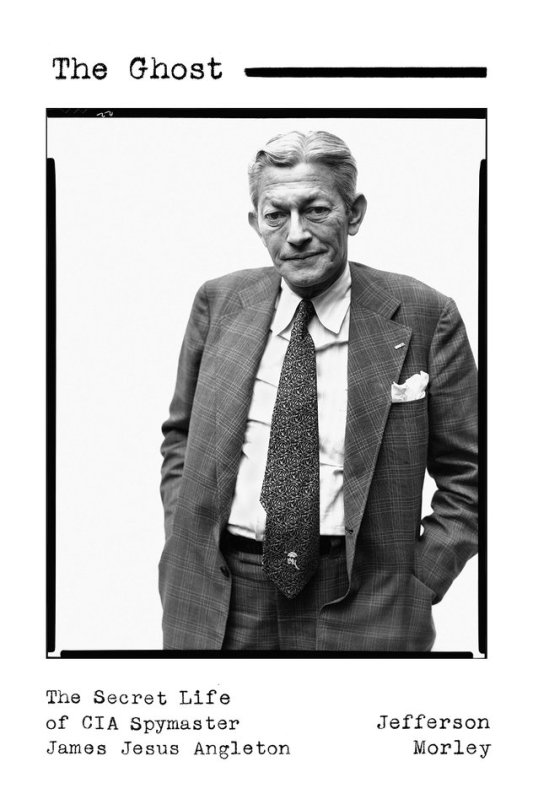
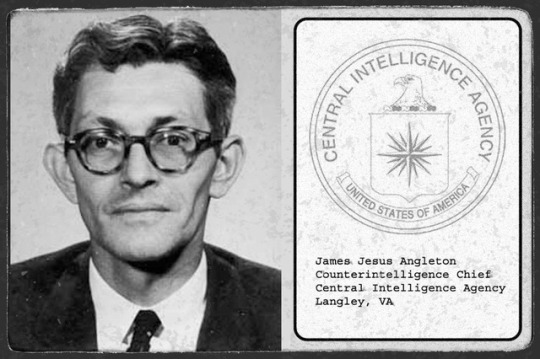
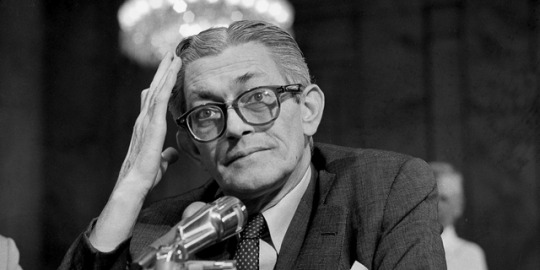

Anyone feeling bereft after finishing the last Le Carre would do well to find a copy of Jefferson Morley’s riveting new biography, The Ghost: The Secret Life of CIA Spymaster James Jesus Angleton, from St. Martin’s Press.
#books#jefferson morley#the ghost#james jesus angleton#cia#spymaster#spies#espionage#cold war#history#biography#new books#new releases#st. martin's press
5 notes
·
View notes
Photo
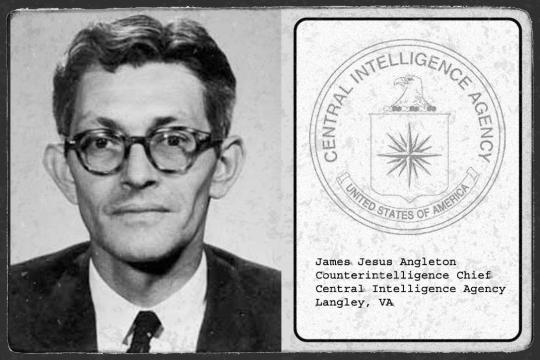
My man, James Jesus Angleton, head of the CIA. He was sure Olaf Palme, Willy Brandt and Pierre Trudeau were all communists.
Angleton dug deep for commies, in the State Department, the FBI and the CIA, until, by the late 60s - early 70s, it was clear, to the powers that be, that Angleton would have to go.
2 notes
·
View notes
Text
PARANOIA
This is not the most original statement, but reading about espionage sure does tell you a lot about paranoia. A couple of things jump out of the book I’m currently reading about Kim Philby (A spy among friends by Ben MacIntyre).
Firstly, that at one stage during the Second World War, Philby was so prolific and consistent in sending high grade intelligence through to the Soviet Union that Moscow Centre started to doubt if he could possibly be for real. And yet Moscow also knew that if their suspicions about Philby were correct (i.e. that he was double crossing them and sending dud information), they must take great care in not letting him knew that they knew. “Here, then,” writes MacIntyre, “was a truly bizarre situation: Philby was telling Moscow the truth, but was disbelieved, and allowed to go on thinking he was believed; he was deceiving the British in order to aid the Soviets, who suspected a deception, and were in turn deceiving him.”
It reminds me of what Zizek writes about James Jesus Angleton, the brilliant CIA boss, whose paranoid conviction that there must be some Monster Plot at the heart of US intelligence led him to discredit virtually anything he was told by Soviet defectors (most of whom were genuine). The suspicions which must be at the heart of espionage (especially during a Cold War) end up grinding the industry to a standstill.
Philby, by all accounts a supremely competent spy, had another dilemma, which also tells us something about the structure of paranoia. He must be good – i.e. he must send reliable data which enables the Soviet Union to foil the West’s plans – but he cannot be too good, for if every plot is foiled, someone will smell a rat and his cover will be blown. In order to be a good Soviet spy, he must also be a good Western spy – he must keep these two sides of his professional life (which, like two ego states, are each disdainful of but reliant upon the other) in perfect harmony. Neither must win, or else both will lose – which is of course what eventually happened.
2 notes
·
View notes
Photo

Spymaster via http://naturalshoulder.tumblr.com/
4 notes
·
View notes
Photo
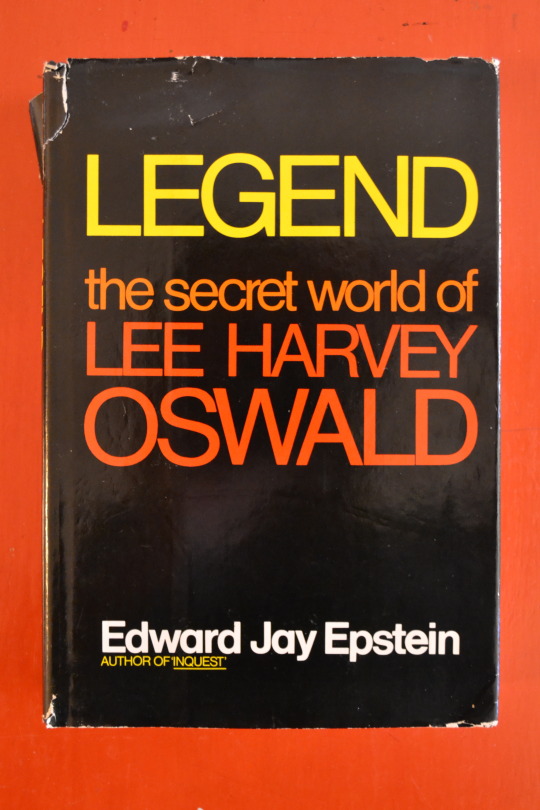
#Legend#The Secret World of Lee Harvey Oswald#Edward Jay Epstein#james jesus angleton#lee harvey oswald#KGB#CIA#Cold War#kennedy assassination#JFK assassination#Matt Kenny book collection
4 notes
·
View notes
Text
I dreamt I was cultivating orchids, but they grew much too quickly, proliferating like weeds.
0 notes
Photo
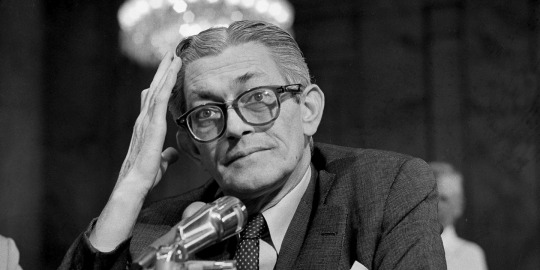
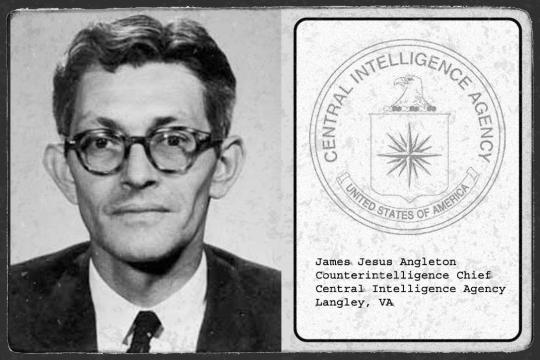
James Jesus Angleton, Associate Deputy Director of Operations for Counterintelligence
0 notes
Text
If you've read Zizek's book on Lacan (ha - I say that like Lacan is only an occasional subject for Zizek - I mean the "How to read Lacan" book - and probably several other actually), you will be familiar with James Jesus Angleton.
Angleton was a chief of staff at the CIA at the height of the Cold War. He believed that there were Soviet moles in the heart of the American secret service. Indeed, he was so convinced of this that he deployed operations (called "molehunts") to identify and eradicate them. He suspected all Soviet defectors and some US agents of being covert communists, at one stage even suspecting Kissinger of being under the influence of the KGB.
These operations effectively paralysed the CIA, and no genuine moles were found during 20-odd years of his influence. It is not difficult to see Angleton himself as the big mole who brought down the system, whose identify he was so obsessed to discover.
"Therein resides the truth of the paranoiac stance," writes Zizek. "It is itself the destructive plot against which it is fighting." For two decades the only thing that was not placed under suspicion was Angleton's own suspicion.
I've been thinking a lot about Angleton recently. I work in a bureaucracy, and everything that is done in a bureaucracy serves at least one of two purposes: to satisfy the system that you are hard at work and therefore needed, and to postpone anything from actually happening.
I don't mean this flippantly. Somebody recently said to me (in a way that I think was supposed to impress me, and perhaps even scare me a little): I love governance.
This is the way that bureaucracies work. Everybody is hard at work, feeding the beast / Big Other, slightly frustrated that their grand visions are not being realised by their hard work, unaware that it is this endless action which is preventing real change, but fantastically, jouissancistically, blissfully satisfied by their excellence governance.
3 notes
·
View notes
Text
Watching Axis Powers Hetalia and imagining that America is really James Jesus Angleton.
#Hetalia#Hetalia: Axis Powers#The extent of my Cambridge Spies/The Company obsession#James Jesus Angleton#The Company#Cambridge Spies
0 notes
